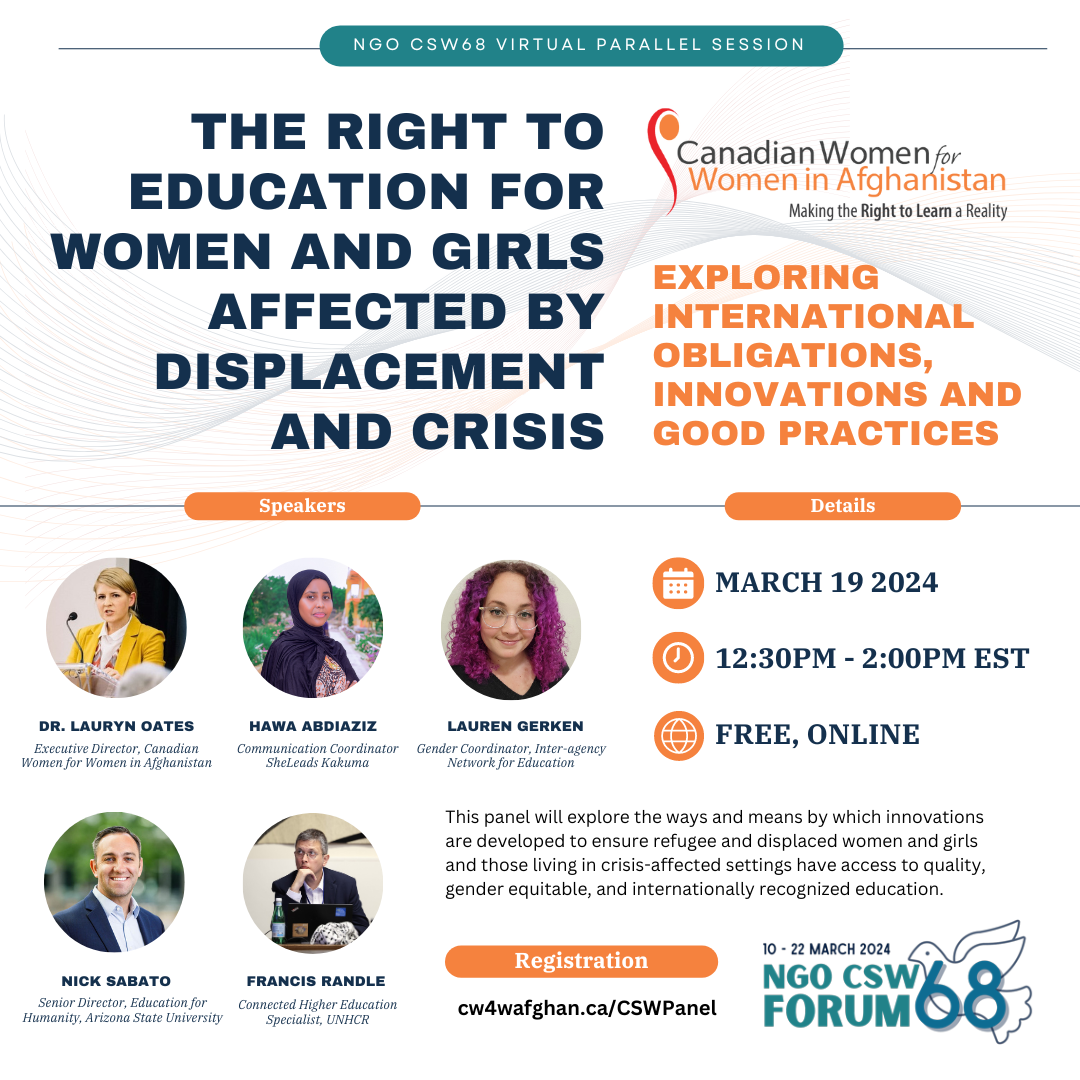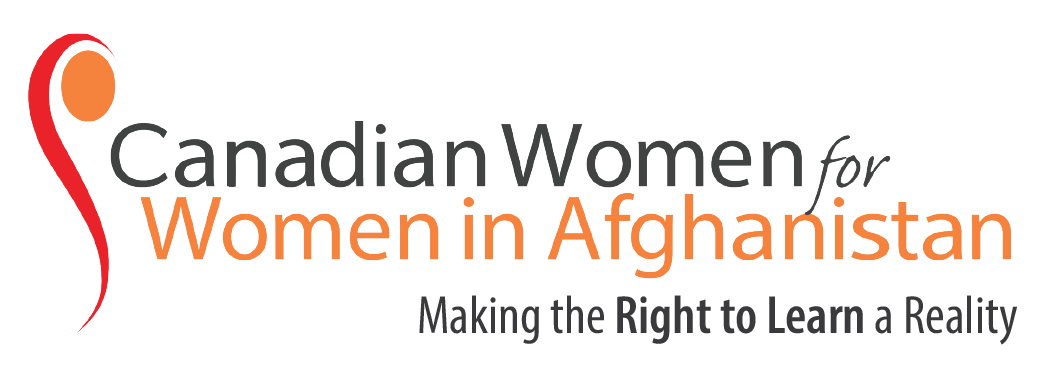March 19 @ 12:30 pm – 2:00 pm EST
Start time where you are: Your time zone couldn’t be detected. Try reloading the page.
This panel will explore how innovations are developed to ensure refugee and displaced women and girls and those living in crisis-affected settings have access to quality, gender-equitable, and internationally recognized education that will open further opportunities for durable solutions, upward mobility, and viable livelihoods. It will consider models that seek to reach populations denied education – due to crisis, war, displacement or discrimination – from a human rights perspective, as a legally enshrined obligation of the international community, and as a means to achieving gender equality and reducing poverty.
Key questions this session will include:
- In situations where states are not complying with their obligations to provide education, what are the international human rights obligations of other states to step in with alternatives?
- What existing models are promising, and how can digital resources be utilized to bridge the education gap for refugee and displaced women, especially in areas with limited in-person educational opportunities?
- How can such models facilitate mobile education for girls and women as they transition through the refugee regime?
- How can we ensure a human rights-centred, gender-responsive approach to education delivery in crisis-affected settings where states can or will not deliver on legally enshrined responsibilities?

Speakers:
Moderator

Dr. Lauryn Oates
Executive Director, Canadian Women for Women in Afghanistan
Dr. Lauryn Oates is the Executive Director of Canadian Women for Women in Afghanistan and has worked in various leadership roles with the organization, including Programs Director. She holds a BA Honours in International Development from McGill University, an MA in Human Security and Peacebuilding from Royal Roads University and a PhD in Language and Literacy Education from the University of British Columbia. She has worked with a variety of development organizations, multilateral agencies, and governments designing, planning, evaluating, or implementing programming in education and in gender equality, particularly in war-affected countries, and authored UNICEF’s 2012 Afghanistan Multiple Indicator Cluster Survey (AMICS). She is the recipient of several awards and distinctions including a Queen’s Diamond Jubilee Medal awarded by the province of British Columbia.
Panelists

Nick Sabato
Senior Director, Education for Humanity at Arizona State University
Nick Sabato, Senior Director of Education for Humanity at Arizona State University, leads ASU’s efforts in extending educational access to refugees and communities affected by displacement around the world. He serves on behalf of ASU as co-lead of the Connected Learning in Crisis Consortium alongside the UN Refugee Agency in developing collaborative programs that prepare refugee learners to meet their educational ambitions. His educational background includes an MA in International Relations from American University’s School of International Service and a BS from Miami University (OH).

Lauren Gerken
Gender Coordinator, Inter-agency Network for Education
Lauren leads INEE’s work on gender and girls’ education in emergencies. She coordinates the INEE Gender Working Group, produces and hosts the Educate Us! podcast, and manages the Mind the Gap report and policy paper series on girls’ education in crisis and conflict. Lauren holds an M.A. in International Educational Development from Teachers College, Columbia University and a B.A. in Linguistics from the University of California, Berkeley. Lauren has ten years of experience as an educator and a practitioner supporting humanitarian and development organizations and is based out of the New York offices of the International Rescue Committee.

Francis Randle
Connected Higher Education Specialist, UNHCR
Frankie is UNHCR’s Connected Higher Education Specialist based at UNHCR’s education HQ in Copenhagen. He represents UNHCR as the co-lead of the Connected Learning in Crisis Consortium and works with partners to bring higher education to communities where refugees are hosted. Prior to joining UNHCR he worked as a teacher and programme manager in Sudan, Libya, Ethiopia and Jordan.

Hawa Abdiaziz
Communication Coordinator SheLeads Kakuma
Hawa Abdiaziz, a Somali refugee born in the Marafa refugee camp on the Kenyan coast, draws her inspiration from her mother, a resilient woman who raised ten children, eight girls, and two boys, in a patriarchal community. Committed to ensuring her daughters’ access to education, Hawa aspired to become a journalist, dedicated to telling stories that challenge patriarchy and promote girls’ education. In 2019, she achieved her dream by securing admission to Nişantaşı Üniversitesi in Istanbul, Turkey, where she earned a Bachelor’s degree in Media and Journalism. Hawa actively participates in Transform Education, an initiative hosted by the United Nations Girls’ Education Initiative (UNGEI). She is also a member of the Refugee Education Council, contributing to the advancement of education for refugees. Hawa’s involvement extends to co-leading the Girls’ Education in Emergencies Working Group, an integral part of the Secondary Education Working Group. In addition, she takes on a leadership role in SheLeads Kakuma, a leadership, mentorship, and advocacy program for young women and girls in the Kakuma refugee camp in Kenya.


